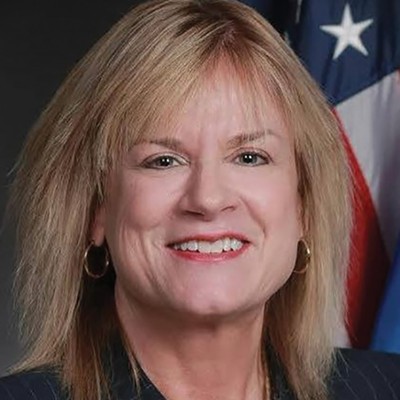“I’m troubled by it,” said Oklahoma City Mayor Mick Cornett of the trend of state lawmakers increasing control over cities across Oklahoma, especially the large urban centers of OKC and Tulsa.
A recent rash of state legislation has barred cities in the state from certain activities. A grassroots effort to urge OKC leaders to increase the minimum wage was soon snuffed by state lawmakers who passed a bill barring cities from setting wage standards.
While the minimum wage increase effort had yet to gain support from city leaders, OKC has moved forward on creating an abandoned and vacant property registry, which is also under threat from the Statehouse.
“The registry for abandoned property is something that we have been working on for a long time because we have so many neighborhoods that want to improve themselves,” Cornett said.
“I think the city has a responsibility to do what they can, but this bill would prevent us.”
Abandoned properties House Bill 2620, which has gained traction through the Legislature this year, would prevent cities from creating property registries.
OKC’s effort to create a registry has received opposition from local Realtors, but HB 2620’s author, Rep. Steve Martin, R-Bartlesville, said it’s designed to protect property owners.
“[Oklahoma City] is combining vacant and abandoned properties on its list,” Martin said.
“There is a tremendous difference between vacant and abandoned properties. Some people have property that is well-maintained but vacant.”
Martin said he realizes his bill is exercising state control over municipal matters, but he feels that it is necessary at times.
“There are many ways in which the state limits the ability of cities to have local control,” Martin said. “We don’t let municipalities charge [property] tax or sentence people to death. We don’t let them do a lot of things.”
OKC officials view the registry ban as contrary to the city’s right to discuss issues and decide them locally.
“Each municipality has their own democratic process for adopting ordinances to do their work they need to do in their community, and our community felt a need to get on top of this issue,” OKC Planning Director Aubrey Hammontree said.
“We are kind of waiting to see how this bill is going to turn out. Hopefully it won’t pass.”
HB 2620 passed the House and was voted out of a Senate committee. It now waits to be heard on the floor of the Senate.
Politics at play Cornett said one of the differences between municipal and state government is partisan politics. Cities have their share of Republican-versus-Democrat issues.
But with nonpartisan elections and lawmakers, OKC doesn’t see its policies driven by partisan politics like the state government, Cornett said.
“We are not partisan by our nature [at the city], and we create what we hope is a nonpartisan environment,” Cornett said.
“It seems that the rural legislators do a good job of rallying around their causes and the urban legislators divide themselves upon partisan lines. As a result, rural legislation can often rule the day.”
Minimum wage Politics appeared to also be at play when Gov. Mary Fallin signed a bill into law that prevents cities from setting a minimum wage.
At the national level, Democrats have lobbied for a minimum wage increase. Fallin, a Republican, did not reference cities when she signed Senate Bill 1023. Instead, she directed her comments at President Barack Obama.
“President Obama and the Democratic Party are advocating for an increase in the minimum wage from $7.25 to $10.10,” Fallin said in a statement.
“Oklahoma doesn’t need the Obama Administration’s advice on how to build a strong economy.”
On the flipside, municipal leaders claim they don’t need state lawmakers’ advice on how to manage their own affairs.
Cost-cutting measures City leaders are hopeful some other bills will clear hurdles at the Capitol and open the door to economic development and cost savings.
House Bill 1875 would restructure the fee cities pay to the Oklahoma Tax Commission for collecting sales tax.
“Cities were kind of getting frustrated with the service they were receiving from the tax commission and not knowing how that money is being spent,” said Jane Abraham, OKC’s government affairs manager.
Abraham said the city estimates it is overpaying the tax commission nearly $2.2 million each year.
Abraham lobbies for OKC at the state Capitol, and she said a legislative agenda is created every fall in an effort to track issues that relate to municipal government.
This year, that also includes a bill to remove the 2,500-foot buffer around schools that does not allow for the operation of a dog kennel or facility.
“What that law has done is crowd out dog grooming and dog daycare facilities in the urban areas,” Abraham said.
“We are trying to fix that because it’s an economic issue. We are close on that one.”







